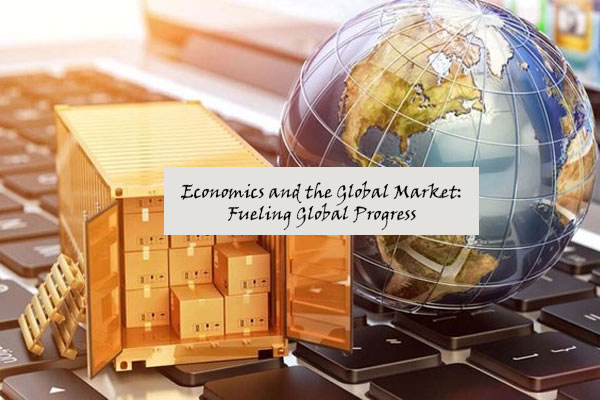Economics and the Global Market: Fueling Global Progress
In a world driven by interconnected economies, the global market stands as the lifeblood of innovation, trade, and development. Economics serves as the guiding force behind this intricate system, helping nations, businesses, and individuals unlock unprecedented opportunities. From expanding markets to fostering prosperity, the global market shapes our present and future, offering endless possibilities for growth and collaboration.
What is the Global Market?
The global market refers to the vibrant exchange of goods, services, capital, and resources across international boundaries. It is the engine of global economic integration, where producers, consumers, and investors interact on a massive scale. Enabled by advancements in technology, trade agreements, and seamless transportation systems, the global market has created a truly borderless economy. Businesses now have the power to reach untapped audiences, access critical resources, and thrive on a global stage.

Economics: The Blueprint of the Global Market
At the heart of the global market lies economics—the science of resource allocation, trade, and decision-making. Economic principles explain how markets function, ensuring a harmonious flow of goods and services worldwide. Key drivers of the global market include:
- Globalization: Globalization has dismantled trade barriers, allowing nations to specialize in their strengths. Whether it’s high-tech manufacturing in China or software services in India, specialization fuels efficiency and accelerates economic growth.
- Trade Agreements: Trade agreements such as the World Trade Organization (WTO) policies and regional alliances like the European Union (EU) promote cooperation. By streamlining trade regulations, these partnerships create win-win opportunities for participating nations.
- Currency Dynamics: Exchange rates are the invisible gears of global commerce. A strong or weak currency determines trade competitiveness, driving exports or affecting international investment decisions.
- Economic Policies: Governments use fiscal and monetary policies to stabilize their economies and influence global markets. Whether through adjusting interest rates, controlling inflation, or setting trade tariffs, policies act as tools to navigate global challenges.
Why the Global Market Matters for Business
For businesses, the global market is a goldmine of opportunities and innovation. It offers access to:
- Larger Audiences: Companies can transcend domestic boundaries and cater to international customers.
- Efficient Supply Chains: By sourcing materials and labor globally, businesses cut costs and boost efficiency.
- Competitive Edge: Operating in global markets forces companies to innovate, adapt, and improve product quality.
However, with great opportunity comes challenges:
- Economic Uncertainty: Global recessions, inflation, and fluctuating exchange rates can derail growth plans.
- Trade Barriers: Tariffs and sanctions can limit access to key markets.
- Geopolitical Tensions: Political instability and conflicts can disrupt global trade routes.
Emerging Economies: The New Powerhouses
Emerging economies like China, India, and Brazil are rewriting the rules of the global market. Boasting expanding consumer bases, skilled labor forces, and rapid technological advancements, these nations are spearheading economic growth and reshaping global trade dynamics. They are the future hubs of innovation, offering lucrative opportunities for businesses worldwide.
Navigating Challenges with Innovation
While the global market fosters growth, challenges like inequality, sustainability, and automation disruptions cannot be ignored. Businesses and nations must strike a balance between economic success and responsible progress. Embracing green technologies, inclusive policies, and adaptive strategies will be critical for long-term sustainability.
Conclusion
The global market, fueled by the principles of economics, drives innovation, collaboration, and economic growth on a worldwide scale. By understanding its dynamics and addressing challenges proactively, businesses and nations can unlock boundless opportunities for shared success. In this ever-evolving global landscape, adaptability, sustainability, and a forward-thinking mindset will be the keys to thriving in the global market’s promising future.







